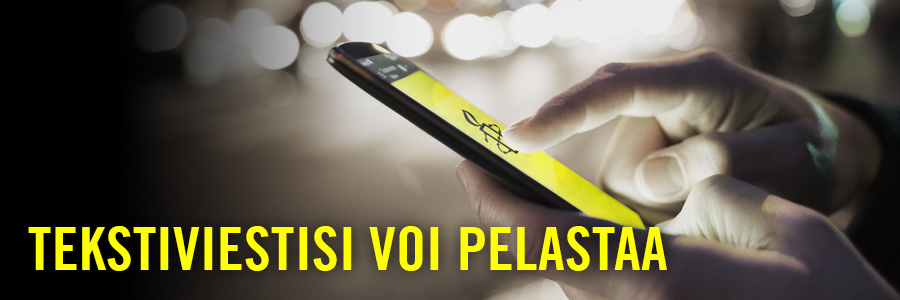Public Prosecutor Mohamed Shawky Ayyad
Office of the Public Prosecutor
Madinat al-Rehab, Cairo, Arab
Republic of Egypt
Fax: +202 2577 4716
X: @EgyptianPPO
Dear Counsellor,
I am writing to express my concern over the arbitrary detention of 71-year-old Yehia Hussein Abdelhady, a prominent opposition politician and former spokesperson of the Civil Democratic Movement, a political opposition alliance. Authorities are targeting him in relation to his Facebook post published on 22 July in which he wondered how long the military intends to remain silent while Egyptian people live in acute poverty amid the government’s failure and corruption, calling for regime change in the country.
On 31 July, policemen in plain clothes arrested Yehia Hussein Abdelhady from his friend’s car while both were heading to a political event in Al-Karama political party’s headquarters in Cairo, Egypt’s capital. Policemen neither showed an arrest warrant nor informed Yehia Hussein Abdelhady of the reasons for his arrest. They also refused to identify themselves. On the same day, a Supreme State Security Prosecution (SSSP) prosecutor interrogated him in relation to charges of “joining a terrorist group”, publishing “false news”, “inciting the commission of a terrorist crime”, “misuse of social media”, and “funding terrorism”.
Evidence against him by the National Security Agency (NSA), a specialized police force, presented to the SSSP included screenshots of social media posts critical of the government attributed to him. A SSSP prosecutor questioned him about the social media post published on 22 July in which he called for regime change. After interrogations, the prosecutor ordered his pretrial detention for 15 days pending investigations.
Yehia Hussein Abdelhady is held in 10th of Ramadan prison and has yet to be permitted visits by his family, amid concerns over his age-related health conditions, including diabetes and a heart condition.
This is not the first time that Egyptian authorities target Yehia Hussein Abdelhady. In 2018, prosecutors initiated criminal investigations against him on charges of insulting the president, disturbing public order, and publishing “false news” in connection with a social media post critical of President Abdel Fattah al-Sisi. In 2019, authorities arrested him after the Civil Democratic Movement called for the release of its detained members. He was released from arbitrary detention in June 2022 following a presidential pardon, after 42 months of unjust imprisonment.
I urge you to ensure that Yehia Hussein Abdelhady is immediately and unconditionally released and all charges against him dropped as he is being detained solely for the peaceful exercise of his right to freedom of expression. The Egyptian authorities must refrain from using counterterrorism legislation to target peaceful critics and keeping them in pretrial detention indefinitely.
Taustatietoa
Yehia Hussein Abdelhady is a vocal opponent of the government of Egypt. He is a co-founder and former spokesperson of the Civil Democratic Movement, a political opposition alliance. Over the past few years, he has been regularly publishing articles and social media content critical of President Abdel Fattah al-Sisi’s government.
The arrest of Yehia Hussein Abdelhady came just a few days before the use of pretrial detention was discussed during the “national dialogue”, a presidential initiative launched last year that serves as a platform for dialogue between the opposition and the government on pressing issues. Over the last month, the Egyptian authorities have intensified their crackdown on dissidents and journalists. In July, the authorities arbitrarily arrested a journalist and a cartoonist solely for their media work and subjected both to enforced disappearance for periods ranging between two to five days. Since the beginning of July, Egyptian security forces have arbitrarily detained 119 individuals in connection to online calls for anti-government protests that eventually did not materialize.
Egyptian authorities have been consistently targeting Yehia Hussein Abdelhady for his political opposition. On 11 November 2018, prosecutors investigated him over charges of insulting the president, disturbing public order, and publishing “false news” after he published a Facebook post criticizing President Abdel Fattah al-Sisi’s statement on the 25 January Revolution of 2011. Prosecutors ordered his release on bail, according to local rights groups.
On 29 January 2019, authorities arrested Yehia Hussein Abdelhady a few hours after the Civil Democratic Movement called for the release of its members who were arrested after commemorating the anniversary of the 25 January Revolution. Prosecutors at the SSSP opened criminal investigations against him in Case No. 277 of 2019 into charges of joining a group established in violation of law, planning and preparing to commit violence and using the 25 January Revolution anniversary to cause chaos in the country, and publishing “false news”, according to local rights groups. Prosecutors ordered his pretrial detention for 15 days pending investigations.
In June 2021, while still in pretrial detention in connection to Case No. 277 of 2019, he was referred to trial in connection to the 2018 case. An emergency court sentenced him to four years in prison in May 2022. Proceedings in front of the emergency courts in Egypt are inherently unfair. Defendants are denied the right to appeal their convictions and sentences in front of a higher tribunal. During the same month, President Abdel Fattah al-Sisi pardoned him. He was released on 1 June 2022, after three and half years in prison.
On 18 January 2024, in a separate case, a court sentenced Yehia Hussein Abdelhady to a suspended one year in prison over charges of publishing “false news” that stemmed from his social media content that was critical of the government. He was referred to trial without being questioned, according to the Egyptian Front for Human Rights, a local human rights group.
Under international law and standards, the right to freedom of expression applies to information and ideas of all kinds, including those that may be regarded as deeply offensive, disturbing or shocking. While States have an obligation to prohibit advocacy of hatred, international standards are clear that this should be more than just the expression of ideas or opinions that are hateful towards members of a particular group and require a clear showing of intent to incite others to discriminate, be hostile toward, or commit violence against a protected group.
Since 2013, the Egyptian authorities have consolidated their grip on social media and intensified their crackdown on people posting content critical of the government. Since then, the authorities have subjected thousands of critics to arbitrary arrest and prolonged pretrial detention on trumped-up terrorism-related charges or for publishing “false news” in contravention of the right to freedom of expression, association or peaceful assembly.


